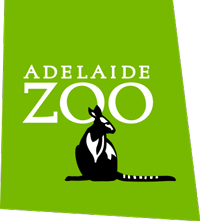The ninth International Zookeeper Day is held on Wednesday October 4 in honour of St Francis of Assisi, the patron saint of animals.
Zookeeper Day celebrates the people who make it their life’s work to care for animals, whether at zoos, sanctuaries, aquariums, rescue centres, parks or reserves.
This is Pij’s story.
The first thing to do before the Monday morning catch-up in the primates hut is to mask up. We never did it pre Covid says Adelaide Zoo senior keeper Pij Olijnyk but it’s good policy, to protect the animals, not us.
Adjacent the baboon habitat, the jungle coloured hut is anonymous yet the nerve centre of the day’s activity.
Talk is about possible hand feeding and medications. Cassie, Rachel, Hong and Becky join in, everyone knows their stuff, it’s easy and they get on with it. They want to.
Nearby and beyond its steel netting, an adult baboon Mahali peers in intently and is joined, intermittently by 12 month-old Lily and a yet to be named six-month-old, jerky and jumpy both, spectator friendly.
“Avoid eye contact,” says Pij. “We have to respect hierarchy, particularly if we need to target a lower ranked individual. They rank above me.”
The zoo’s Sumatran Orangutans meanwhile are sited at the other side of the hut. Pij kneels down for a g’day with Puspa, 48-years-old and the most senior orangutan anywhere in Australasia. His tone is gentle and matter of fact.
“Talk to them as you might to a young child, It’s a comfort thing,” he says.
Chatting comes with a quick visual check-up. Puspa might be storing something in her lower lip says Pij, we’ll keep an eye it. “It’s the sense of knowing what’s normal.”
Puspa came from Perth in 2011.
“She wanted her own space but it took her three years before she went outside here. When she did, she didn’t come back in for a month.”
The years are wearing but the care is first rate.
“She had her gall bladder removed recently after a cat scan. We brought in a human medical specialist to do that. We also have a human dentist for these guys.”
Puspa enjoys her independence and space but enjoys people watching. Stimulation is important.
Kluet, born at Jersey Zoo 28 years ago – and who lives next door – has always thrived with other orangutans.
“We need to provide imagination. They pick up on specific words, like herbal tea. Kluet likes it hot while Puspa prefers room temperature. I will say to Kluet, ‘hot, hot, hot’.”
Kluet it turns out, is a television fan, setting up last night’s nest in front of a large TV screen skirting his indoor living space. Comfort is a big thing – he invariably wanders around with a blanket wrapped around him.
“He’s fascinated by videos and technology,” says Pij. “We have DVD footage of other orangutans, Kluet is always gripped. They’ll watch it on a loop.”
Keeper life is full on all day and Pij’s story endorses the colourful and far from conventional routes into the profession.
Like many keepers, he has animals at home, three rescue cats including one with dwarfism and a 21-year-old. From country SA, he grew up with animals before moving to Adelaide to follow a cricketing (and education) dream with the distraction of a cricket scholarship to Prince Alfred College in Year 10 took before a decade with a leading food retailer.
“Sometimes you don’t know how this happened. I had an early midlife crisis. I’d been a zoo member and this idea of being a zoo keeper popped up. I joined a TAFE veterinary nursing course and got a placement at Adelaide Zoo.” Suited to the task clearly an assistant curator offered him a casual job, starting on the giraffe and panda rounds followed by the big cats.
Now the senior keeper of primates, he oversees a team of seven full-time permanent staff and three or four casuals, an 80/20 split in favour of the hands-on still.
Feeding done, it’s time for a mid-morning ‘smoko’ – tea and coffee only – adjacent the South American birds aviary with eight other keepers who roll up, including an even better cricketer, Dan, who was on the verge of a first class debut for Yorkshire before he was derailed by injury. Keepers come from all backgrounds.
Pij arrives daily at 7.30am, cycling in from upper Sturt on his electric bike, time to clear the mind.
He’s been with the orangutans since 2014 and was a carnivore/tiger keeper before. It’s an emotionally challenging job with many similarities to nursing Pij says, the labour, the practical and deal with emotions.
“I do feel an extreme level of responsibility. Responsibility for the team. I have really worked on. The ride is a really good way of transitioning from that.”
Shortly after joining the orangutans, Pij went on two weeks leave and Puspa almost tripped up dashing over to see him on his return.
“It would be different if I’d been around for four or five years and they would have got used to me.”
He says ‘good boy, good boy’ to them continually as you might to a pet dog at home. Becoming protective is part of the job.
“Sometimes I almost need to check myself and think for them and not for me. It’s about bringing other people into the environment. I don’t want the orangutans to be completely reliant on any one of us. It’s not like a domestic animal where you know you might outlive them. That’s not going to be the case for an orangutan.”
Constant training is a big thing – Kluet presents a shoulder on cue when asked, knowing the animals will play along when they might need a medical injection matters.
Later Kluet hangs back when he sees me in the inside of the keepers’ work area (but not in his living area).
“He was probably wondering if you were a vet,” Pij says. “He has such a good memory, we’re trying to engender a positive experience with the vets.”
Pij works a four week roster, three and four day weekends the reward for a long seven day stretch and brisk walks to all corners of the zoo daily.
“Double lock all gates,” he says. “Never be afraid to check that someone has locked it.”
Heather, an assistant curator and his boss, is adamant what qualities a good keeper should possess.
“You would want someone who is everything that Pij is,” she says.
Visitors are encouraged to come to Adelaide Zoo to see Puspa and Kluet in their habitat.
Adelaide Zoo is open 365 days a year.








